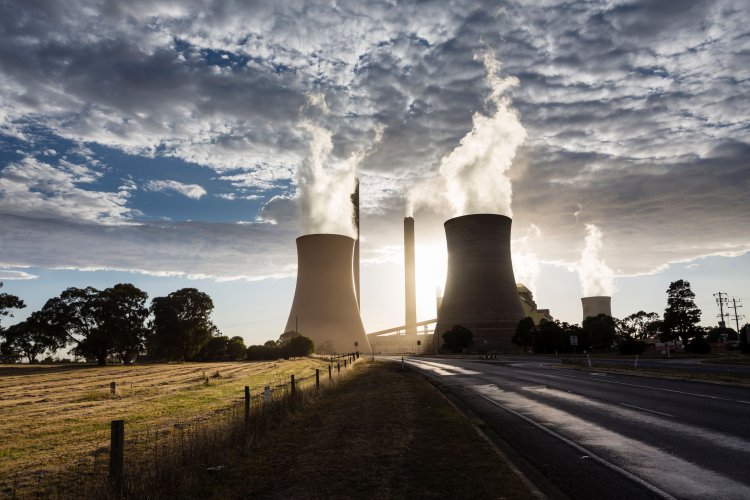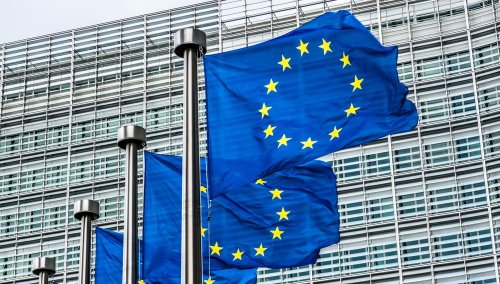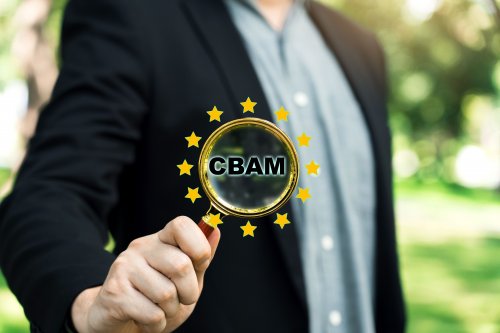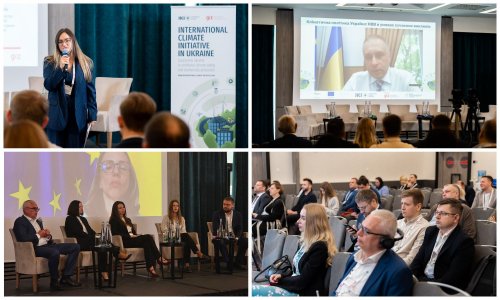Experts named 3 reasons why the war in Ukraine requires a rethinking of the carbon border adjustment mechanism (CBAM) planned in the EU.
A step forward is to adjust carbon emissions based on an excise tax, also known as a climate fee, reports EURACTIV.
This was stated by Carsten Neuhoff, Head of the Department of Climate Research at the German Institute for Economic Research and Professor of Economics at the Technical University of Berlin, and Andreas Goldthau, Director of the Willy Brandt School of Public Policy, Professor at the University of Erfurt and Head of the Research Group at the Institute for Advanced Studies in Sustainable Development in Potsdam.
They noted that the EU has opted for a ten-year phase-in of the carbon tax from 2026, which is currently being negotiated between EU countries and the European Parliament. This risks delaying efficient CO2 pricing and the full industrial transition.
- Steel, cement or fertilizers consumed in Europe mainly come from russia, Ukraine and Turkey.
Trade with russia has fallen, and perhaps forever. Turkey may be needed to insure the geopolitical ambitions of the russian federation. Ukraine needs cooperation, economic stabilization and industrial reconstruction.
- Developing countries are delaying economic sanctions against russia.
This confirms these countries' deep reservations about trade measures when used for non-trade purposes, whether related to climate goals or geopolitical agendas.
- The development of the CBAM to force India, Brazil, Indonesia or South Africa to adopt domestic carbon pricing models may indicate the tax's growing reputation as a disguised green protectionism.
“As the decoupling between the West, China and Russia are on its way, Europe should keep emerging economies on its side to support an ambitious climate agenda. It needs to choose its instruments wisely," the article says.
For a carbon price to work and reduce EU industrial emissions, carbon caps will need to be adjusted. However, Brussels should abandon the idea of developing a CBAM to spread carbon pricing globally.
Instead, it should be left to trading partners to choose the instruments they consider most appropriate for decarbonizing their economies. In support of the latter, the EU can and should make tangible and ambitious proposals.
Climate finance, based on bilateral cooperation currently being developed with South Africa or India, is central to this support.
Revenues from CBAM can be redirected to help developing economies green their industrial bases. In Ukraine, this should become the basis of the green0 Marshall Plan and support its path to a post-war low-carbon economy.
Instead of measuring CO2 emissions in the country of origin, the climate contribution would be based on standardized emission intensity values applied equally to domestic and imported materials such as steel, cement or plastic.
It also covers basic materials as part of manufactured products.
Experts explained that this practice applies to other excise goods (for example, alcohol, tobacco, energy). The duty can be canceled when exporting materials, as well as in the composition of manufactured products.
A CBAM based on a climate contribution sets a clear incentive for climate-neutral production. The basic materials sector remains subject to emissions trading but will see continued free allowances for the transition period to climate neutrality.
However, the latter would only be granted to companies that enact credible and robust strategies toward decarbonisation. The result: the EU CO2 price remains an effective, central driver of EU emissions reductions without risk of carbon leakage and industry is relived from double charges.
As part of their impact assessment, the European Commission already vetted an excise duty-based CBAM as a possible design option. It should now opt for it as part of cooperative Green Deal diplomacy.
"The EU can exert leadership through the unwavering support of ambitious third countries and leave it to their respective governments to use the most promising instrument – be it carbon pricing or other," experts emphasized.
Earlier, EcoPolitic wrote, that the head of the Ministry of Environment, Ruslan Strilets, said that Ukraine plans to discuss separate rules of participation in CBAM.
As EcoPolitic previously reported, and the EU is negotiating about revision of the Emissions Trading Scheme (ETS) against the background of the energy crisis, the cessation of Russian gas supplies and worsening climate change.





